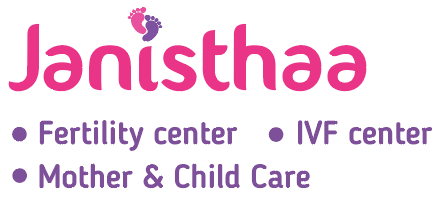Are you navigating the complexities of fertility treatments and curious about what happens after receiving an HCG injection? Understanding the symptoms of egg rupture after HCG injection is crucial for effectively managing your journey and optimizing your chances of conception. This guide will cover the entire process, key symptoms, and how choosing the best IVF center in Bangalore, like Janisthaa IVF, can make all the difference.
Step-by-Step Process of HCG Injection and Egg Rupture
Step 1: Consultation and Assessment
Before starting the HCG injection process, you will undergo a thorough consultation and assessment with your fertility specialist. This step is crucial to determine the right treatment plan for you, considering your medical history, hormonal levels, and ovarian reserve.
Choosing the best IVF center in Bangalore, like Janistaa, ensures that you receive comprehensive care tailored to your specific needs.
Step 2: Ovarian Stimulation
The next step involves ovarian stimulation, where medications such as gonadotropins are administered to stimulate your ovaries to produce multiple eggs. This phase generally lasts between 8 and 14 days, with your progress closely monitored using ultrasounds and blood tests.
Step 3: HCG Injection
Once your follicles have reached the desired size, usually around 18-20mm, your doctor will administer an HCG (human chorionic gonadotropin) injection. This injection triggers the final maturation and subsequent release of the eggs from the follicles, known as ovulation.
Step 4: Monitoring Symptoms of Egg Rupture After HCG Injection
After the HCG injection, it is crucial to be aware of the symptoms indicating egg rupture. Recognizing these symptoms helps you understand that ovulation is occurring, allowing you to time intercourse or prepare for egg retrieval accurately.

Struggling to Conceive?
Let Dr. Shwetha Help You Take the Right Step Forward
👩⚕️ Fertility Consultation – Get clarity on your chances of conception and understand what’s holding you back.
🧬 IVF & IUI Treatments – Safe, ethical, and high-success fertility treatments with a personalized plan for your body.
💬 Second Opinions – Already undergoing treatment? Get your reports reviewed by an expert with 20+ years of experience.
Symptoms of Egg Rupture After HCG Injection
Understanding the symptoms of egg rupture after HCG injection can provide you with peace of mind and clarity during your fertility treatment.
Here are the common symptoms to expect:
1. Abdominal Discomfort and Cramping
One of the first symptoms you might notice is abdominal discomfort or cramping. This is due to the release of the egg from the ovary and the associated changes in your reproductive organs. The discomfort is typically mild to moderate and should subside within a day or two.
2. Mild Bloating
Bloating is another common symptom experienced after egg rupture. This occurs as your body responds to the hormonal changes induced by the HCG injection. Though it may be uncomfortable, it is usually a normal part of the process.
3. Increased Cervical Mucus
You may observe an increase in cervical mucus, which becomes clearer and stretchier, resembling raw egg whites. This change in mucus consistency facilitates the sperm’s journey towards the released egg, enhancing the chances of fertilization.
4. Breast Tenderness
Hormonal fluctuations following the HCG injection can lead to breast tenderness or sensitivity. This symptom is similar to what some women experience during their menstrual cycle and should resolve on its own.
5. Light Spotting
Light spotting or slight vaginal bleeding can occur as a result of the egg rupture. This is generally minimal and should not be a cause for concern unless it is heavy or persists for an extended period.
6. Elevated Basal Body Temperature
Tracking your basal body temperature (BBT) can provide additional confirmation of ovulation. After the egg ruptures, you may notice a slight increase in your BBT, indicating that ovulation has occurred.
7. Mood Swings
Hormonal changes can also lead to mood swings or emotional fluctuations. It’s important to recognize this as a normal part of the process and seek support if needed.
The Importance of Choosing the Best IVF Center in Bangalore
Recognizing the symptoms of egg rupture after an HCG injection is crucial for navigating your fertility treatment journey. By understanding these symptoms, you can better manage your expectations and ensure timely intervention when necessary.
Choosing the best IVF center in Bangalore, like Janistaa, can significantly enhance your treatment experience, providing you with expert care and support every step of the way.
Selecting the best IVF center in Bangalore, such as Janistaa, is crucial for a successful fertility treatment journey. Top-tier centers offer state-of-the-art facilities, experienced specialists, and personalized care plans tailored to your specific needs.
These centers are staffed with experienced fertility specialists, skilled embryologists, and supportive team members who are all committed to delivering exceptional care. Equipped with the latest technology and techniques, leading best IVF centers in Bangalore enhance treatment success rates with advanced diagnostic tools and cutting-edge lab facilities.
For personalized care and expert guidance, visit the Janistaa website and take the first step towards achieving your dream of parenthood. With the right knowledge and support, you can navigate the complexities of fertility treatment with confidence and hope.

